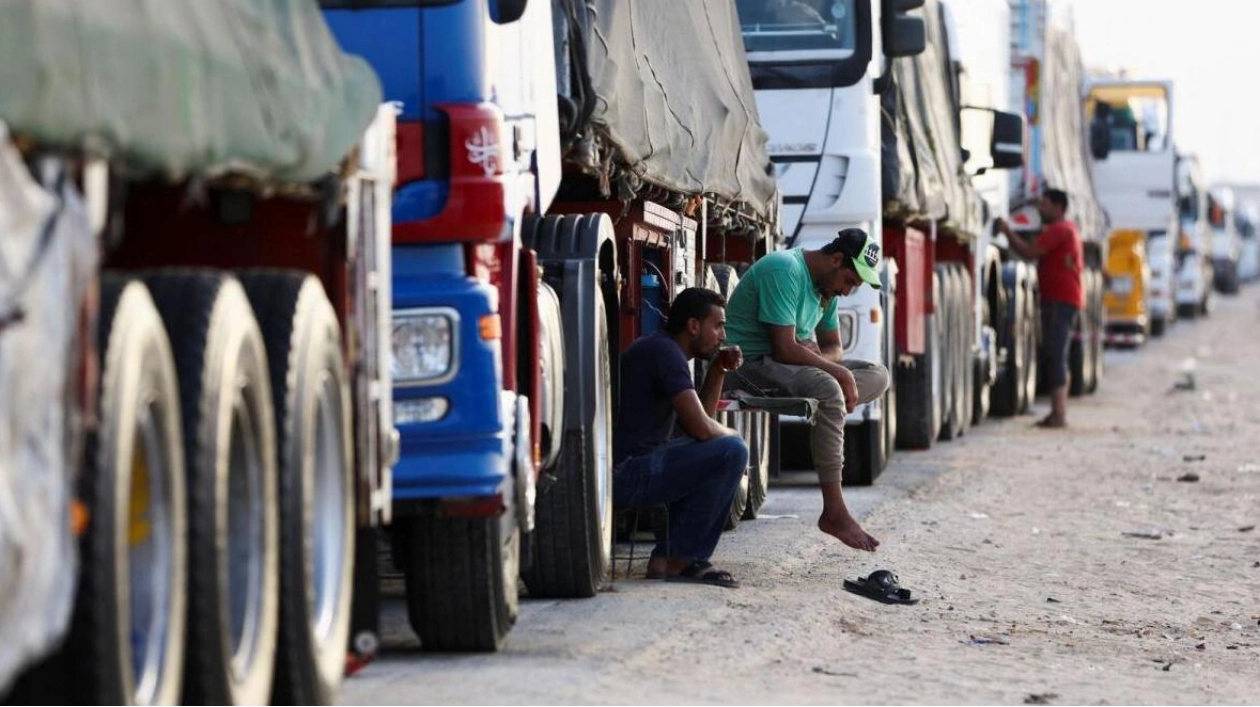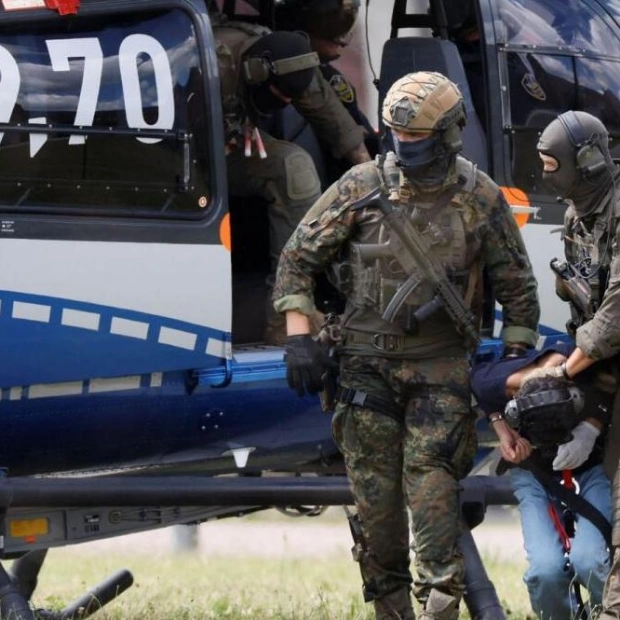Numerous trucks, brimming with essential food and water supplies, are currently marooned on an intensely hot Egyptian roadway, with some having been held up for almost two months, all in anticipation of clearance to transport these vital humanitarian goods into war-ravaged Gaza.
Approximately 50 kilometers from the Gaza border, a convoy of trucks laden with flour, water, and other critical aid items stretches along a dusty road in both directions. The drivers report enduring several weeks of waiting in the oppressive Egyptian summer heat. This delay is intensifying the already severe humanitarian situation in Gaza, which has been embroiled in conflict between Israel and the Palestinian militant group Hamas for nine months. Aid organizations are issuing warnings about the heightened risk of widespread famine in the coastal enclave under siege.
The truckers, stationed on the periphery of the Egyptian city of Al Arish in the Sinai Peninsula, express their inability to deliver humanitarian aid since Israel escalated its military operations along the Gaza-Egypt border in May. Some perishable food items have reportedly gone to waste.
"I swear to God, before this shipment, we were here for over 50 days, and ultimately, the cargo was sent back because it had expired," recounts truck driver Elsayed El Nabawi. "We had no choice but to return it. We then loaded another batch, and here we are, standing once more, with only God knowing whether this load will reach its destination before it spoils or what fate awaits it."
The Israeli military initiated its attack on the southern Gaza city of Rafah in May. Since then, the Rafah crossing, a crucial conduit for aid delivery and patient evacuation for Gazans, has remained closed. Discussions involving Egypt, the United States, and Israel have been unsuccessful in reopening Rafah, with Egypt insisting on the restoration of Palestinian presence on the Gaza side of the border. Israeli flags now fly over buildings in Gaza that were destroyed along the border with Egypt.
"We've been stuck here for over a month, waiting to deliver this load. We've been waiting for our turn, but nothing has happened yet," laments Ahmed Kamel, another truck driver, who sits alongside his vehicle, sipping tea and smoking cigarettes. "We have no idea what our future holds — when we will be able to enter? Today? Tomorrow? The day after tomorrow? Only God knows. Will the items we're carrying remain viable, or will most of them spoil?"
Although aid and commercial supplies continue to enter Gaza through other land border crossings, via air drops, and by sea, aid groups and Western diplomats assert that the quantities are insufficient to meet the needs. The drivers report waiting for Israeli authorization.
Distribution of aid in Gaza was already challenging prior to Israel's offensive on Rafah. Israel has imposed restrictions on goods entering the enclave, citing the need to prevent Hamas from obtaining them. Some aid convoys have also been targeted in Israeli military strikes, resulting in the deaths of aid workers. Palestinian gangs within Gaza have allegedly attempted to pilfer aid and commercial supplies entering the territory, which is home to approximately 2.3 million Palestinians. Desperate Palestinians have also overwhelmed trucks, seizing much-needed humanitarian supplies.
A senior official at the Israeli foreign ministry attributes the backlog of aid in Egypt to the accumulation of humanitarian aid on the Gaza side of the Kerem Shalom crossing point, resulting in a backlog of approximately 1,200 truckloads of aid. The official notes that while Israel continues to facilitate the entry of supplies into Gaza, the distribution network inside Gaza, operated by international groups, has been "disrupted" in recent months, due to local Palestinian criminal gangs and Hamas.
The Israeli military, which oversees coordination of aid in Gaza, asserts that it is allowing sufficient food to enter from Israel and Egypt to sustain the entire population. It also acknowledges that aid agencies encounter "difficulties" in transporting food once it has entered through crossing points, including those from Israel. Maha Barakat, an assistant minister in the UAE foreign ministry and a trained medical doctor, reports that Palestinians who manage to leave Gaza are malnourished. The UAE has been involved in medical evacuations from Gaza.
"They are becoming thinner and thinner," Barakat told Reuters aboard a UAE government chartered flight to Al Arish, noting that the lack of nutrition means wounds are unable to heal. "It is becoming more than just injuries of war," she said.






